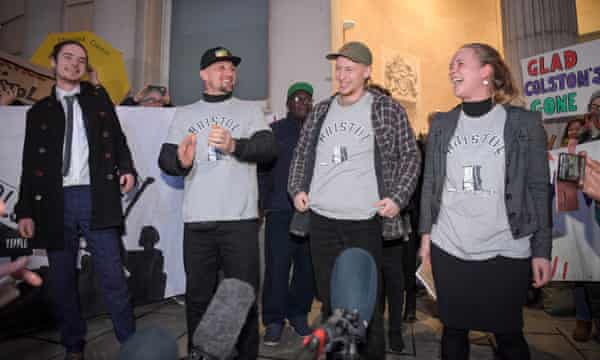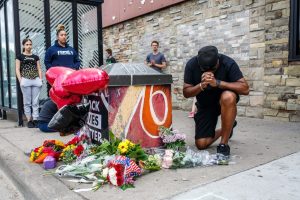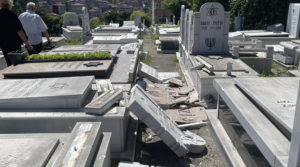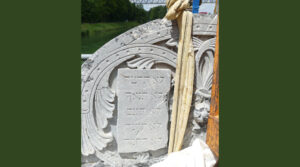We have been accused of erasing history – but that’s impossible. All we did was shine a light in places people don’t want lights to shine
On 7 June 2020, I was part of a group of protesters who pulled down a statue of the slave trader Edward Colston and threw it into the Bristol harbour. I have never felt and will never feel that what we did was wrong, and I have never thought I was a criminal. But it’s a beautiful thing that a jury has sat through all the evidence, and come to the same conclusion.
I had a good feeling about the trial throughout, but I had to prepare for both outcomes – it could have gone either way. Our defence rested on the argument that we had indeed pulled down the statue during a Black Lives Matter protest, but that given Colston’s role in the Royal African Company, which enslaved tens of thousands and was responsible for the deaths of an estimated 19,000 people, this wasn’t a case of criminal damage.

Obviously I don’t think that this verdict means we should start pulling down all the statues in the UK. Really, it’s not about statues at all: it’s about that statue, in this city, at this time. It really is a very particular backdrop, and the jury obviously came to an understanding of that nuance. The legacy of all the people who have protested against the statue and campaigned to end the “cult of Colston” in Bristol gave us legs to stand on – groups such as Countering Colston and Bristol Radical History Group. Without all those who have dug deep into history, we wouldn’t have stood a chance – our actions would have been seen as criminal damage by the jury.
My barrister Blinne Ní Ghrálaigh said that jury trials are one of the backbones of our democracy, and of the legal system, because they allow for decisions like this. However, there already seems to have been a direct government response to the Colston statue toppling in the form of a clause in the new police, crime, sentencing and courts bill, which states that if you pull down a monument you can get up to 10 years in prison, as opposed to the previous three months maximum. The bill as a whole will allow police to shut down protests on the basis of noise or “serious annoyance”, and will make it easier to convict protesters. Even under our current laws people charged with rioting are facing time in prison that seems completely disproportionate to their actions.
Our case has demonstrated the value and power of protest. One of the arguments made by our legal team was that the cultural and historical value of the statue has actually increased since it was taken down. And something they weren’t allowed to mention to the jury, but which an art valuer confirmed for us, was that its monetary value has increased by up to 50-fold since we pulled it down. In that sense, how can it be said that we damaged anything? That statue is a far more useful tool for history and learning than it ever was before, which negates any of the arguments made about us “erasing history”. You can’t erase history. What Colston and the myths around him have done is shroud history by deeming him – as the statue’s plaque says – “one of [Bristol’s] most virtuous and wise sons”. We are trying to shine a light in places people don’t want lights shining.
I hope this outcome has given a platform to the people in Bristol who have been fighting this battle far longer than I have. The city has a clear duty now to reckon with its past and set up memorials or museums to the slave trade, and recognise that so much of the prosperity enjoyed today in the UK and Bristol comes off the back of historical atrocities. But Colston represents something even wider than that. Wealth disparity and inequality affects all races. You hear some counter-arguments to Black Lives Matter that the white working class lose out because Black British people get some kind of special treatment, but that’s just not the case. One of the main lessons from all this is to remember that just because someone else is struggling and you have empathy for their struggles, it doesn’t invalidate your own. We all need to have empathy for one another.
This verdict is not about me, it’s not about Sage Willoughby or Milo Ponsford or Jake Skuse – the other members of the so-called Colston Four who stood trial with me. It’s about Bristol, and it’s a win for the people of Bristol. It’s another step along the way towards racial justice.
- Rhian Graham is a stage manager and facilitator and was one of four people who stood trial for the removal of the statue of slave trader Edward Colston in Bristol




